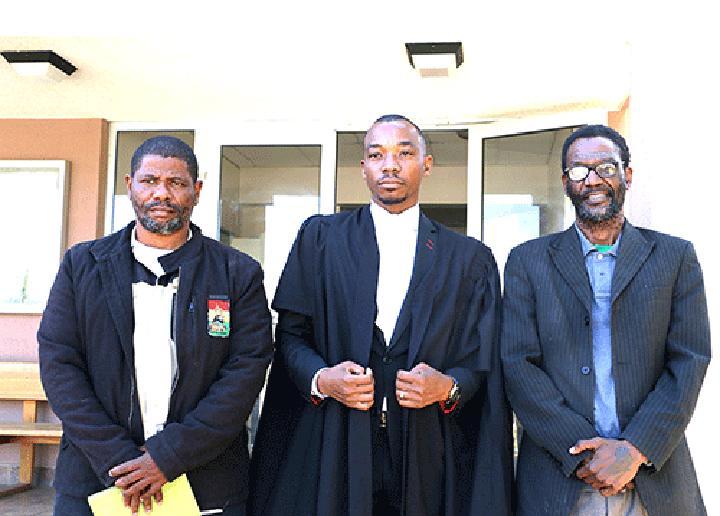Africa-Press – Namibia.
The country has witnessed protest marches, hunger strikes and public declarations, all calling for the reform of what many have come to know as Namibia’s draconian anti-cannabis laws.
These actions, often with the Ganja Users of Namibia (GUN) at the forefront, reflect growing frustration over the current legislation on cannabis, which has been described as outdated, overly punitive, and out of step with global trends towards decriminalisation and legalisation.
In the years following 2021, the matter has been contested in the country’s High Court, with GUN’s president Brian Jaftha and its secretary general Borro Ndungula as the plaintiffs.
During proceedings yesterday, the State argued for a special plea, requesting for the matter to be put on hold, as it is premature for the court to rule on the issue at this stage.
It argued that the issue of cannabis as a drug is a society issue, and central for determination on this issue, is the protection of society at large and not only the plaintiffs.
Additionally, the State cautioned the court from intruding on another organ of state function, pointing out that the Law Reform and Development Commission (LRDC) is in the process of conducting research on this matter.
Moreover, the State said the case is not yet ripe for judicial intervention and should be left until it is finalised by the LRDC and Parliament.
Furthermore, the State contended that the legality of cannabis use is a policy matter that falls squarely within the exclusive domain of the legislature, and not the judiciary.
As such, the State argued, the cannabis policy requires in-depth research, taking into account social implications, health risks, and other factors, and not solely on alleged infringements of rights, especially given that the current legal framework classifies cannabis as a habit-inducing substance.
The State also reiterated that the classification of cannabis as a habit-inducing substance was not in dispute, and questioned who could reliably determine whether traditional use of cannabis would avoid the risk of dependence.
Lawyer Kadhila Amoomo, representing the plaintiffs, argued that the State was misapplying the legal doctrine of ripeness in a case challenging the criminalisation of cannabis.
He contended that the matter was ripe for ruling, noting that there have been instances where courts have ruled on constitutional questions and the infringement of individual rights without another organ of state’s finality.
He added that leaving the matter in limbo would cause prejudice to his clients, as people will continue to be prosecuted heavily under the Abuse of Dependence-Producing Substances Act.
Amoomo accused the State of delaying proceedings and wasting the court’s time.
He also pointed out that the LRDC only makes recommendation, hence, relying of pending reports as a reason to delay the case is merely a tactic by the State to delay proceedings.
Jaftha and Ndungula are petitioning the court to declare the laws criminalising the use and possession of cannabis, as unconstitutional.
They argued that the continued enforcement of these South African apartheid laws unjustly oppresses and infringes upon the rights to dignity, religion, and equality.
Additionally, the two are also requesting the court to order the release of all individuals currently arrested or detained for cannabis-related offences.
They told this paper that their fight is one for fairness and equal treatment, urging the government to accord cannabis users the same recognition and rights it extends to users of other legal substances in the country.
They pointed out that the unfairness, noting that alcohol, which is identified by the World Health Organization (WHO) as one of the leading causes of preventable death, remains legal and regulated, while cannabis, which does not even feature in the WHO’s top five causes of substance-related deaths, remains criminalised in Namibia.
They further argued that their demand is not for unrestricted use of cannabis, as the State seems to suggest, but rather for reasonable regulation.
The case is being presided over by a full bench of judges, Dinna Uusiku, Claudia Claasen and Philanda Christiaan.
For More News And Analysis About Namibia Follow Africa-Press






